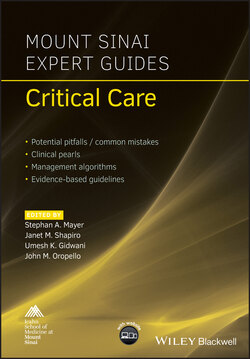Читать книгу Mount Sinai Expert Guides - Группа авторов - Страница 143
Monitoring
ОглавлениеDaily bedside clinical examination is important to assess vascular access site appearance, volume status, neurologic function, weight monitoring, and readiness for initiation of enteral nutrition.
Labs include daily monitoring of electrolytes, glucose, liver, and lipid panels.
For patients on prolonged TPN support, less frequently monitored parameters include TSH, PTH, vitamin D, transthyretin, and carnitine levels.
24 hour nitrogen balance has been a validated marker for improved outcomes. It is calculated by subtracting the total nitrogen removed (via urine and stool) from the total nitrogen consumed. Every gram of negative nitrogen balance reflects a loss of 6.25 g of protein or 30 g of muscle mass.
Indirect calorimetry allows for measurement of resting energy requirements and respiratory quotients (RQs) using measurements of oxygen consumed and carbon dioxide produced. While it requires considerable investment in specialized equipment and training, indirect calorimetry can also provide information on whether there is ongoing over‐ or underfeeding.
A RQ of <0.8 signifies a considerable catabolic state where fats and proteins are being utilized as the source of energy. Conversely, in patients with a RQ >1.0 this signifies overfeeding. The goal RQ for patients on TPN is between 0.8 and 1.0.
